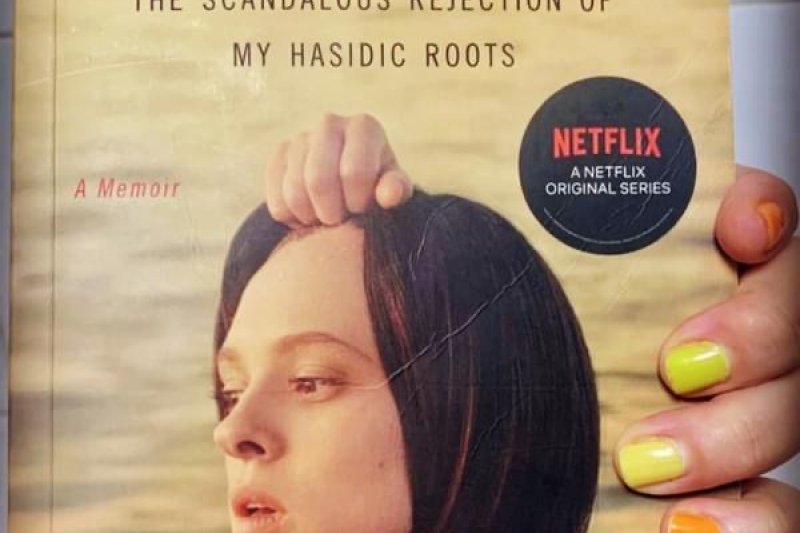I finally received the copy of “Unorthodox, the scandalous rejection of my Hasidic roots” on May 12, 2021. It had been posted from London on… February 18; that’s more than 2 months of riding in planes, while we humans are bound to remain grounded 🙄. While the Covid frenzy contributed much to the detours and hence to the delays, I decided to pass it on to my best friend’s daughter, who had expressed the intention of reading it. But this time, the book was sent in a piece of hand luggage. This means it took a matter of days to reach its destination in Brazil 🙂
On to our subject of interest. The author, Deborah Feldman, was born in America and grew up in the Hasidic Satmar community of Brooklyn. She now resides in Berlin. Her memoir/autobiography depicts her struggle to accept a mapped-out life that shows no excitement to her mind and that feels quite oppressive in this simplistic perception. The narrator is torn between what she is taught to be the right way of life and her aspirations, to read -other than in Yiddish-, to discover what is beyond her neighborhood, and to broaden her horizon. At times, I had trouble keeping my attention on the story. Feldman is sort of privileged. Yes, she has to abide by a ton, or more, rules such as Hasidic women cannot wear jeans, or the color red, read unapproved books, including the Talmud; they cannot get an education beyond high school, and so on. And yet, the author was still able to divorce and take her son with her. How did she pull that off financially? I wonder how did her husband or his family permit that? Did they fight her off on it? Did she get closer to her mother after she left?.. She generally sounds condescending to other women who did not pack their car, took their child, and simply left, as she did.
While this life story can seem heroic to a Western European reader, growing up in the Middle East, I have witnessed tragedies that were even more horrific. Many of them turned out badly. Some old customs are absurd, to say the least when it comes to the position and the role of women in certain communities. And while I perfectly understand the need to break free of societal norms that do not provide room for personal growth, I am reluctant to accept self-victimization to attract sympathy. I leave it to you to decide whether this is a book for you or not. Or maybe you would want to watch the Netflix series that was made of it. It was a smooth read for me, just nothing out of the ordinary.


